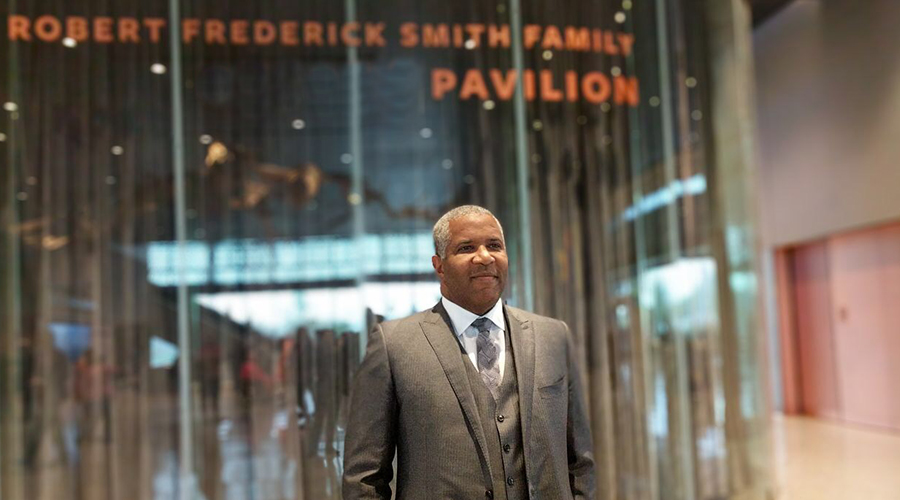As a part of the 19 museums that make up the Smithsonian Institution, the National Museum of African American History and Culture opened to the public in 2016 after it was commissioned by an Act of Congress in 2003.
The museum aims to preserve and highlight African American life, history and culture — providing an experience that tells visitors the story of the United States through an African American lens.
As an advocate for the preservation of African American history, philanthropist Robert F. Smith donated $20 million to the museum, which funded the creation of the Center for the Digitization and Curation of African American History, as well as the Robert Frederick Smith Internship and Fellowship Program, and the Robert F. Smith Explore Your Family History Center.
“This museum says that we African Americans are at the center of it all,” Smith said in an interview with the Washington Post at the time of the donation. “And now there is a creative and elegant building that is not just a temple, but is alive.”
Inside the Center for the Digitization and Curation of African American History
The Center for the Digitization and Curation of African American History, which uses cutting edge technologies to digitize photographs, images and music, houses four key components:
- The Robert F. Smith Explore Your Family History Center
- The Community Curation Program
- The Great Migration Home Movie Project
- The Internships and Fellowships Program
Each of these components aid in the Center’s overall mission to preserve African American history and culture, while encouraging engagement and interest in America’s Black history.
“[These Centers are] a way of preserving our history for generations,” Smith said to the Washington Post, “and ensure that the stories of our families continue to be told, generation after generation.”
Robert F. Smith Explore Your Family History Center
The Robert F. Smith Explore Your Family History Center offers resources and training to museum visitors to help them learn about their family history and the basics of researching African American genealogy.
The Center offers public monthly programs, including lectures and workshops that cover a variety of genealogy related topics.
Staff at the Center are also in the process of compiling a “State Resource Guide” that identifies archives, libraries and various outlets that can help individuals research their genealogy in their home state.
The Community Curation Program
The Community Curation Program aims to digitally bridge the gap between generations by offering a platform that allows family stories to be shared through an online community hosted by the museum.
Individuals interested in sharing a family story of their own are encouraged to create an online account and read over the submission guidelines.
The Great Migration Home Movie Project
This project offers resources to convert older home videos and audio tapes into modern digital files. The conversion is available for free, and participants are also free to choose whether or not they want their converted content to be featured on the museum’s website.
The Internships and Fellowships Program
Through Smith’s donation, the museum offers funding for internships and fellowship opportunities to underrepresented students and graduates in the space of cultural preservation.
Interns gain experience in digital imaging, media preservation and more, while graduates who enter into the fellowship program gain valuable experience in fields such as public history, museum management, outreach and partnership building.
Building a Lasting Partnership
Smith continues to support the National Museum of African American History and Culture as an advisory board member where he will build on efforts to preserve African American stories and landmarks.
By joining the museum’s advisory board, Smith will have the opportunity to further impact how future generations are able to access historical information and stories, and learn about their own Black heritage in America.
Learn more about other organizations that Robert F. Smith supports.
